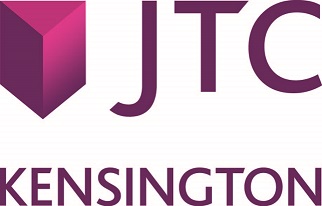Effective December 31st 2019, closed-ended funds are now required to be regulated under the BVI Securities and Investment Business Act, 2019 (as amended) (“the SIBA Amendment Act”).
The historic position in the BVI has been that in order for a collective investment scheme to be considered to be a "fund" under BVI law and so required to be licensed as such by the BVI Financial Services Commission (the FSC), it has been required to fall within the definition of a "mutual fund"/ "fund" under section 40(1) of the Securities and Investment Business Act, 2010 (SIBA). The requirements to be satisfied to fall within the definition are:
Collect and pool investor funds for the purpose of a collective investment
Issue fund interest, i.e. shares, limited partnership interest or units
This change now means that closed ended investment schemes like open-ended ones, are deemed to be a mutual fund under the Act and will be required to be regulated by the BVI Financial Services Commission (FSC). The fund will need to register, be approved or to be recognised by the FSC.
MUTUAL FUND
There are five main types of mutual funds in the BVI, distinguished by the Act:
- PRIVATE FUNDS
(i) the constitutional documents has restricted the maximum number of its investors to fifty (50) or an invitation to subscribe for shares shall be made on a private basis only; and
(ii) no legislative requirement for a minimum initial investment sum. - PROFESSIONAL FUNDS
(i) the shares of which are made available only to professional investors, and
(ii) the initial investment of each investor shall be not less than US$100,000.
A "professional investor" is any person, who qualifies under any one of the two possible criteria:
(i) a professional investor is one whose ordinary business involves, basically, investment business similar to the kind of the fund itself, or
(ii) a professional investor is also one who has declared his net worth to exceed USD1.0 million and has consented in writing to be treated as a professional investor. - PUBLIC FUNDS
(i) a mutual fund which is not a private fund, professional fund, approved fund or incubator fund;
(ii) a public fund is simply one that offers its investment shares to general public; and
(iii) the fund must be registered, must publish a prospectus including the information required by the Act and must also produce and distribute audited annual financial statements.As opposed to "registration" of the public funds, required by the Act, the procedure prescribed for professional and private funds is called "recognition". It is much simpler than the one prescribed for the public funds.
- INCUBATOR FUNDS
(i) available for offerings to "sophisticated private investors" only (for these purposes, to be a "sophisticated private investor" a person must be invited to invest and the amount of his or her minimum initial investment shall not be less than US$ 20,000);
(ii) maximum of 20 investors;
(iii) aggregate maximum investments in the Fund not exceeding US$ 20 million (or its equivalent in another currency);
(iv) "Incubator Fund" approval status limited to two (2) years (with a possible further 12 month extension available at the discretion of the FSC, provided such application for an extension is filed at least one month prior to the expiration of the two year period) (defined in the Regulations as the "period of validity"), following which the incubator fund must either (i) convert into a private fund; professional fund; or approved fund or (ii) cease operating as a fund;
(v) simplified licensing process. - APPROVED FUNDS
(i) maximum of 20 investors;
(ii) aggregate maximum investments not exceeding US$ 100 million (or its equivalent in another currency);
(iii) simplified licensing process.As opposed to "registration" of the public funds and recognition of professional and private funds, both these funds must be "approved" by the FSC in an even simpler process.
BVI BUSINESS COMPANY AS AN OPEN ENDED FUND
Typically an open ended fund would have a small number of management (ordinary) shares, held by or on behalf of the promoters, the remainder of the shares being issued in one of more classes of redeemable participating shares.
A BVI Business Company which is recognised by the FSC as a private, professional, incubator or approved fund, must at all times have at least two (2) directors, at least one of whom must be an individual.
A public fund must at all times have at least two (2) individual directors.
Under the Act, a registered or recognised fund must, at all times, have:
- an investment manager;
- an administrator; and
- a custodian who is functionally independent from the investment manager and the administrator.
It is possible, in certain circumstances, to apply for the fund to be exempted from the requirement of having an investment manager and/or a custodian.
Each mutual fund is also required to appoint an authorised representative in the BVI. The authorised representative’s role is limited to liaising between the fund and the FSC.
